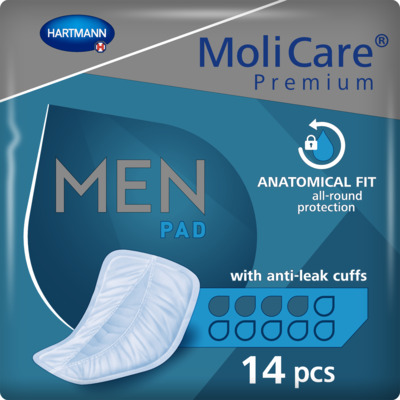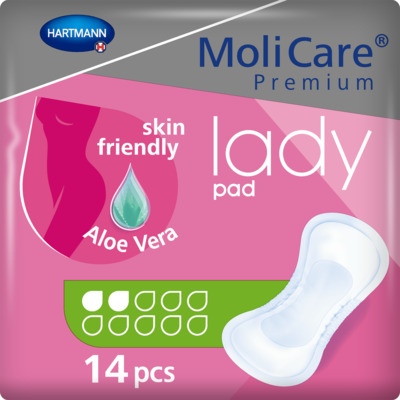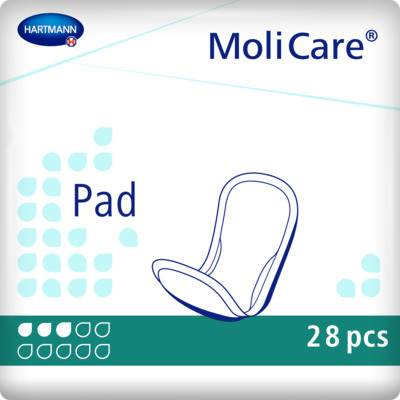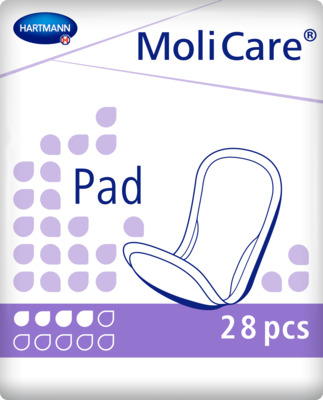Incontinence Advice
Alcohol and The Impact It Has on Your Bladder and Bowels
Everyone enjoys an alcoholic drink or two. Whether it’s wine with dinner, whiskey with friends, or sweet, cold champagne on New Year’s Eve, most of us enjoy a tipple (or two or three!) every now and then. The problem with alcohol is not that we drink it; rather, it’s how much we actually drink.
And when excess alcohol is consumed over an extended period, its negative consequences can be devastating to our health and well-being.
If you are experiencing bladder leaks or incontinence, then browse our range of incontinence pads for a solution to help you manage.

Alcohol & the impact it has on your bladder & bowels
Alcohol and The Bladder
You've probably experienced this at the pub after drinking a few pints: your urge to use the toilet ramps up quickly.
Normally you empty your bladder 4 to 6 times per day. When you drink alcohol, however, excess urine production can lead to dehydration and much more concentrated urine. It is not uncommon for this urine to appear dark yellow, or even brown in colour.
Men, if you're worried about unexpected bladder leaks, try our MoliCare® Men Pads for discreet and comfortable protection.

Alcohol and urinary tract and kidney infections
What’s the problem with concentrated urine?
It wreaks havoc on your urinary tract. Concentrated urine sits in the bladder, and it can cause irritation and inflammation in the lining of your bladder. You are far more likely to develop a urinary tract infection (UTIs) if your urine is concentrated, which can also spread to your kidneys.
UTIs cause burning, pain, or pressure when you urinate; frequent urination; and an urge to urinate right away. Cystitis is one of the symptoms of a bladder infection and is causes the inflammation and swelling of the lining in your bladder. You might feel sharp pain, see blood in your urine, and experience increased urgency or frequency.
According to the National Institute of Diabetes and Digestive and Kidney Diseases, urinary tract infections are one of the most common bacterial infections in women.
If you notice these symptoms, see your doctor right away!
These issues can really damage your quality of life, and prevent you from travelling, socialising, and a healthy sex life. The best prevention for urinary tract infections is to drink plenty of water and clear fluids; you should also avoid the excessive consumption of alcohol.
Alcohol and bladder control issues
- Increased frequency: If you suffer from any kind of bladder control issue, it is a good idea to watch your alcohol intake. Beer, wine, spirits and all other alcoholic beverages can act as a bladder stimulant, and ultimately lead to incontinence.
- Your over stimulated bladder will make you need to urinate far more often than usual; for people with incontinence paired with other physical issues, they may not be able to make it to the toilet in time.
- Unintentional leakage: Although alcohol is defined as a “depressant,” most people who drink in moderation consume it more for relaxation and its stimulant effect. But this can become problematic when it comes to urinary incontinence, as alcohol can also lead to the relaxation of the bladder muscles, thereby possibly inducing unintentional leakage.
- This can really be a problem if you usually get up in the night to use the toilet – if you have consumed a lot of alcohol and ‘passed out’ you likely won’t get the signal that wakes you. It’s not uncommon for people with bladder leakage problems to wet the bed if they go to bed after having many drinks. If this is the case, you should certainly cut down on their drinking, and use incontinence pads at night time.
- Impaired signals: Alcohol consumption can also cause the brain to send impaired signals to the rest of the body, confusing you as to when you need to go. This might mean that you think you need to use the toilet only to get there and find you don’t, but it is much more likely that you won’t get the warning you need to prevent an accident.

Alcohol and Your Bowels
Alcohol can cause either constipation or diarrhoea in different people, and sometimes one right after another for others!
Learn more about it in our bowel incontinence guide
Alcohol and Diarrhoea
Drinking alcohol can be a wonderful way to relax and unwind with your friends. But if you suffer from chronic diarrhoea, you may want to cut back on the wine.
Alcohol consumption causes irritation and inflammation in the gut, which can in turn cause diarrhoea. Not only does diarrhoea make you feel exhausted and terrible, it can really damage your stomach lining and sap your body of important nutrients.
Alcohol irritates the delicate nature of your digestive tract, and can worsen your diarrhoea. It has been proven that this phenomenon most often occurs with wine, which can destroy the helpful bacteria found in the intestines. We’re not suggesting that you give up your beloved glass of red wine with a fine meal, but don’t overindulge on a regular basis.
Do you find that alcohol affects you more when you have not eaten a solid meal? This makes complete sense.
When you drink while eating food, the alcohol has a buffer. When the alcohol and food reaches your stomach, it is absorbed into your blood via the walls of your stomach. The food slows down the intoxicating effects of the alcohol. However, if you haven’t eaten any food with your alcohol, the booze travels immediately to your small intestine and then passes more quickly into your bloodstream. This is why you feel much more intoxicated at a much quicker rate.
After most or all of the alcohol has been absorbed into the bloodstream, you will then excrete the rest through defecation and urination. When you defecate, your colon muscles move and spasm (peristalsis) in order to push the stool from the body. Alcohol causes these contractions to speed up, preventing your colon from absorbing water, resulting in watery diarrhoea.

Alcohol consumption and constipation
Dehydration
Dehydration doesn't just mean you're thirsty. It's a dangerous condition that can lead to serious health problems if you don't drink enough fluids to replace what you lose in your urine and bowel movements.
Although alcohol is mostly water, it can dehydrate you because it messes with your body's water levels. Alcohol stimulates your kidneys to produce more urine, which means you're losing more fluid than usual through urination and bowel movements.
You might think that drinking beer or other alcoholic beverages would help prevent dehydration, since they contain water. But as we've already learned, alcohol prevents your pituitary gland from producing ADH (anti-diuretic hormone), which prevents you from urinating. So even though beer is mostly water, when you drink it you'll still end up with less water in your body than before because the alcohol prevents your body from reabsorbing the water through urination like it normally would.
Peristalsis
We have already mentioned the contractions in your small intestine and bowel that cause you to have a bowel movement. Peristalsis is necessary in order to effectively propel food through the digestive track. As alcohol is a depressant, it dampens the nerves needed to cause the process to happen. Chronic drinkers will find that they will experience constipation far more often than those who avoid overconsumption.
When you are drinking you are often more tempted to treat yourself with fatty fried foods, high carb meals and decadent sweets – all of which can lead to constipation (and/or diarrhoea) on their own. If you are planning to have a few drinks, make sure you eat a healthy meal beforehand. A stomach full of wholesome food will prevent the alcohol from absorbing too quickly into your bloodstream. Ideally, it will also prevent you from pigging out on junk food!
The bacteria in our gut
Our gut bacteria may be miniscule, but they are incredibly important when it comes to how you look and feel. While some alcohol can have positive effects on pathogenic bacteria (wine can combat and kill H. pylori, it also destroys the positive bacteria as well. Without a solid amount of good bacteria, you end up with gut problems, soft tissue inflammation and poor digestion. Even a small amount of alcohol can throw these levels off, and lead to chronic constipation.

Alcohol and Bowel Conditions
For those with irritable bowel syndrome (IBS), Crohn’s Disease or ulcers, alcohol can cause a huge uptick in symptoms. Alcohol is particularly nasty for people with diarrhoea caused by IBS, and it can trigger an attack that can last for days. The body views the alcohol as a caustic substance, and for those with IBS the results can be prolonged and painful.
In addition to causing problems for people with existing bowel and bladder problems, alcohol greatly increases one’s risk of developing bowel cancer. One of the most commonly diagnosed cancers in the UK, almost 42,000 people were diagnosed with bowel cancer (also known as colorectal cancer) in 2014 alone.
While causes and factors that can lead to a diagnosis of bowel cancer are varied, increased alcohol consumption is one of the most commonly cited causes. If you are a heavy regular drinker, you are putting yourself at risk of cancer.
Summary
In the final analysis, it’s very important to keep active and eat a healthy diet. It’s just as important not to overdo it with alcohol. Simple changes could make all the difference to your life.

MoliCare® Premium Men Pad 4 Drops
<h2>Comfortable and absorbent</h2> <p>Why MoliCare for men? Hers are some of the key features of the MoliCare® Premium Men Pads from Hartmann:</p> <ul> <li>Discreet and comfortable</li> <li>Fits the male physique</li> <li>3-layer absorbent core</li> <li>Fast-absorbing system</li> <li>Anti-leakage cuffs</li> <li>Odour neutralisers</li> <li>Wide adhesive strip</li> <li>Skin-friendly</li> </ul> <p>With an affordable price and great quality guarantee, you cannot regret choosing MoliCare® Premium Men Pad 4 drops, equipped with anti-leak cuffs, and 14 pieces per bag.</p> <h2>Slim and discreet under clothing</h2> <p>MoliCare® Premium MEN Pads offer reliable support for men dealing with bladder weakness. Whether it's stress incontinence or urge incontinence, these pads for men are designed to provide a discreet and quick solution on the go. Simply place the pad before applying your underwear and secure it with the adhesive strip for worry-free protection. MoliCare® Premium MEN Pads offer full coverage for men facing very light to moderate bladder weakness.</p> <h2>Leakage protection for men</h2> <p>MoliCare® understands that each individual's incontinence needs are unique. That's why our incontinence products, including MoliCare® Premium MEN Pads, are available in different absorbency levels. You can find the perfect fit and protection for your specific requirements.</p> <h2>Reliable and soft on the skin</h2> <p>Our body-shaped absorbent pads are designed to deliver dependable and skin-friendly incontinence protection every day. Experience discreet comfort with the soft, cotton-like materials and the added benefit of an odour neutraliser, ensuring you feel fresh and confident throughout the day.</p> <h2>Fast delivery to your home</h2> <p>At HARTMANN Direct, we ensure a fast delivery service for all our products. Enjoy free delivery on orders over £50, making it convenient and hassle-free to receive the incontinence products you need. Our dedicated customer care team is here to discuss your incontinence product needs and answer any questions you may have. Call us today on 0800 028 9470 to experience the comfort and confidence that MoliCare® Premium MEN Pads can provide.</p>
MoliCare® Premium Lady Pad 2 Drops
<h2>Skin Friendly Pant Liners</h2> <p>For women that experience slight incontinence and bladder weakness, across different age groups, it can be a challenge to find the right bladder weakness product that is easy to apply and wear without the worry of potential leakages. Fortunately, we understand this approach, hence why we are happy to offer our MoliCare® Premium Lady Pad 2 drops, that is skin-friendly, Aloe Vera applied, and comes with 14 liners per bag.</p> <h2>Slim and discreet liners</h2> <p>Whether dealing with stress incontinence or urge incontinence, these panty liners offer a discreet and easy solution on the go. Simply place the pad in your underwear and secure it with the adhesive strip for all-round protection. Available in different absorbency levels, MoliCare® bladder weakness products cater to all levels of bladder weakness, ensuring secure care.</p> <h2>Control Bladder Weakness</h2> <p>Enjoy the benefits of these body-shaped absorbent panty liners, designed for women with bladder weakness. The pads offer discreet, reliable protection with features including odour control and fast absorption.</p> <p>With a wide adhesive strip, you can comfortably fix the pad in your regular underwear, providing secure and comfortable fixation. The pads are skin-friendly, featuring soft, breathable materials, including foam cuffs, and a top sheet treated with Aloe Vera.</p> <p>Keeping your skin healthy is a priority, which is why MoliCare® Premium Lady Pads have a skin-neutral pH value of 5.5 and an antibacterial finish. They are also dermatologically tested, offering peace of mind.</p> <h2>Buy pant liners online</h2> <p>Never worry about running out with our convenient order service and fast delivery direct to your door. Enjoy free shipping on orders over £50.</p> <p>If you need assistance, our professional customer service team is here to support you in choosing the right product. Reach out to us today at 0800 028 9470 and experience the comfort and reliability of MoliCare® Premium Lady Pads.</p>
MoliCare Pad 3 Drops
<h2>Incontinence pads for men and women</h2> <p>Protect yourself against slight bladder weakness with the MoliCare® Pad 3 drops. Suitable for men and women, offering an ideal solution to regain control and live your active life without interruptions. Slimline, discreet, and contoured to fit your body, these incontinence pads ensure a comfortable and barely noticeable feel, providing exceptional dryness and protection for slight incontinence.</p> <p>Crafted with soft, skin-friendly fabric and a polyester backsheet, these incontinence pads ensure you can confidently go about your day, secure against minor leaks. The wide adhesive fixing strip keeps the pad securely in place, while the super absorbent core wicks moisture away from your skin. The elastic anti-leak edging adds an extra layer of reassurance, and odour neutraliser keeps you feeling fresh and confident. With the MoliCare® Pad 3 drops, you no longer need to let slight or occasional incontinence hold you back from enjoying life to the fullest. Simply adhere the pad to your underwear, and you will barely feel the difference.</p> <h2>Price match promise</h2> <p>Experience convenience with our fast delivery service, bringing your chosen products directly to your door. At HARTMANN Direct, we offer a price match promise and free delivery for orders over £50, making sure you receive both quality and value.</p> <p>If you need further assistance, our customer care team is here to help. Give us a call today at 0800 028 9470, and we'll find the perfect incontinence product tailored to your needs. Take charge of your life with the reliable and comfortable protection of MoliCare® Pad 3 drops. Say goodbye to worries and hello to an active and confident lifestyle.</p>
